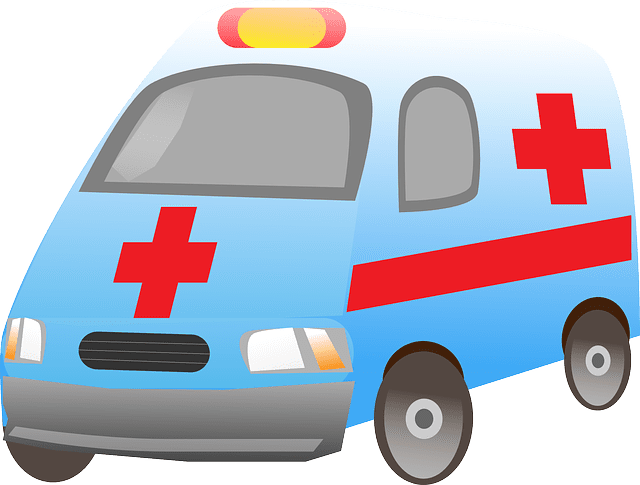If, like most students, you spend more weeks of the year at your university address than your family’s address, you need to register with a GP in Cardiff as soon as possible. That way you can receive urgent and routine care if you need it, and access health services quickly and easily while you’re here.
This is especially important if you have an ongoing health condition, particularly one that needs medicine, such as asthma, diabetes, epilepsy or mental health issues. If a GP surgery covers the area that you live, you can request to register with them. The doctors working in surgeries around the city will be experienced in the health needs of students.
When you contact you GP practice, you will be asked questions about your problem. This will help them to direct you to the right person or service for your needs.

Find Your Local GP Surgery
Welsh Language GPs
If you’d like to register with a Welsh speaking Doctor in Cardiff, this table shows the details of GPs in Cardiff and the Vale of Glamorgan who can consult in Welsh . The table also includes information about other languages spoken by GPs in these areas.
How Do I Choose the Right GP Surgery?
You may wish to join a GP near your term-time address. There are a few things to consider:
- Research your options in the area you want to register with, so you choose a practice that is right for you.
- Compare GP surgeries according to facilities, services or performance before you decide. Ask friends, relatives and others you trust for their thoughts and recommendations.
- Contact the practice and ask if it is accepting registrations.
- If the practice is accepting registrations, ask how to complete the registration.
Following a review of your completed form the practice will confirm your registration.
What Do I Need to Register?


Organ Donor Register
To complete the online GP registration, you will need your:
- NHS Number;
- Town and country of birth;
- Term time address;
- Recent medical history relating to allergies, medication, vital statistics, lifestyle choices or any diagnosis or ongoing treatment.
On 1 December 2015 the law around organ donation in Wales changed. This will apply to everyone who is resident in Wales for more than 12 months, including international students. You may be asked if you wish to opt out of the default NHS Organ Donor Registration, you can submit your preference on the website.
Where Can I Get Further Help?
Pharmacy
Did you know that you can see your local pharmacist for free confidential advice and treatment for a range of common ailments?
If you have a minor illness like coughs, colds, diarrhoea or headaches or need advice on medications you should speak to your Community Pharmacist.
Community Pharmacy Common Ailments Service
This service is available in 104 pharmacies in CAVUHB (to find out which, visit the pharmacy page via the link box).
Community Pharmacists already advise patients on a wide range of common ailments and either recommend treatment or refer on to another healthcare professional.
The NHS Common Ailments Service builds upon this expertise allowing community pharmacists to offer some treatments, if they are considered necessary, free of charge to eligible patients on the NHS.
Due to Covid-19 restrictions patients may need to telephone pharmacies for a remote consultation (video consultations for services will be enabled in community pharmacy across Wales from October 2020)

Find Your Local Community Pharmacist
Dentists
If you have toothache, sore or bleeding gums, troublesome wisdom tooth, tooth sensitivity or other types of facial pain you should book an appointment with a dentist.

Find Your Local Dentist
Optometrists
If you have problems with your eye health like injuries, pain, swelling, visual loss or disturbance you should book an appointment with an Optometrist.

Find Your Local Optometrist
Other
If you are unsure how best to treat your symptoms, Choose Well will help you decide if you need medical attention should you become unwell. It explains what each NHS service does and when it should be used.

Still Not Sure?
If you are unsure on which option to choose, you can contact NHS 111 Wales on 111 or use the handy NHS symptom checker.

Symptom Checker
Emergency Care
If you think that you need to visit the emergency unit at the hospital, you will first need to call the CAV24/7 service.
You will be put through to a Call Handler who will make an initial assessment and will put you in contact with the right person or service. This might involve a call back from a GP, Nurse Practitioner or Paramedic, or they may book you in to see someone at the emergency unit at a local hospital.
To contact CAV 24/7, you can call 0300 10 20 247.
If your emergency is serious or life-threatening call 999.
If you have a serious or life-threatening emergency, you should dial 999.

Student Health Issues
Sexual Health
Community Pharmacy Emergency Contraception Service
This service is available in over 60 pharmacies in CAVUHB.
This service allows where clinically indicated, a supply of emergency hormonal contraception (EHC) at no cost to the patient via a confidential consultation with an accredited pharmacist in one of our listed community pharmacy locations.
Community Pharmacy Oral Contraceptive Service
Women can now access oral contraception at the following four pharmacies either independently or by referral from a Health Care Professional.
- Woodville Pharmacy, Woodville Road, Cathays – 029 2022 7835
- Well Pharmacy, Boverton Road, Llantwit Major – 01446 792267
- Boots Pharmacy, Queen Street, Cardiff – 029 2023 2658
- Cyncoed Pharmacy, Cyncoed Road Cyncoed – 029 20752150
Due to Covid-19 restrictions women will need to telephone the pharmacy in advance to make an appointment for an Independent Prescriber consultation and may be asked to provide additional details such as a blood pressure check, before the prescription is issued.
Mental Health
Every GP Practice in Cardiff and the Vale of Glamorgan has access to an in-house Specialist Mental Health Professional.
If you are worried about your mental health, contact your GP practice.
The GP receptionist will signpost you to the right service for you.
Pregnancy
If You Become Pregnant
We believe that being pregnant, adopting or caring for a child should not in itself be a barrier to applying for, starting or succeeding in a programme of study. The University strives to be as flexible as possible in any such situation.
Ultimately, it is useful to disclose your situation as early as possible, so that any adjustments necessary can be made in good time. A full set of guidance notes, including the University’s policy on pregnancy, maternity and becoming a parent while enrolled on a programme of study can be found on this page.
If you are looking for information about taking an interruption of study , the financial implications of this, or further funding information, please contact the Advice and Money Team .
For further guidance or to discuss anything, please contact Assurance Services: assuranceservices@cardiff.ac.uk.
Maintaining a Healthy Lifestyle
Extensive content already based on Sleeping well, eating well and keeping fit.
Community Pharmacy Smoking Cessation Service
Both level 2 and level 3 Services are available in a number of pharmacies across CAVUHB.
- Level 3 – This service provides one to one behavioural support and advice to smokers who are motivated to give up smoking, taking advantage of the accessibility and convenience of community pharmacies with supply of Nicotine Replacement Therapy (NRT) at no cost to the patient as part of a 12 week Quit programme.
- Level 2 – This service improves access to Nicotine Replacement Therapy (NRT) and professional advice by linking community pharmacies with the intensive behavioural support service provided by other Help Me Quit (HMQ) NHS smoking cessation services.
Meningitis
The early symptoms of meningitis can disguise themselves as other things, such as a headache or the flu.
This means that meningitis can be easy to miss. It is important that you keep an eye on yourself and your friends, as meningitis can develop quickly. If you suspect meningitis you must seek medical help as quickly as possible.
What Is Meningitis?
Meningitis is an infection of the protective membranes (meninges) that surround the brain and spinal cord. The inflammation that results from this can lead to damage of the brain and spinal cord nerves and can be life-threatening. Meningitis is usually caused by a bacteria or a virus.
What Do I Need to Look Out For?
Symptoms can appear in any order. Some symptoms may not appear at all. Do not wait for any of the symptoms to appear if you suspect meningitis; get medical help
urgently.
Early symptoms include:
- Headache
- Fever
- Vomiting
- Muscle pain
More serious signs and symptoms include:
- Severe headache
- Fever with cold hands and feet
- Drowsy, or difficult to wake
- Confusion and irritability
- Vomiting
- Diarrhoea
- Severe muscle pain
- Dislike of bright lights
- Pale blotchy skin
- Stiff neck
- Convulsions, or seizures
- Rash of either small red/purple spots or large black/purple bruises that do not disappear when pressed
If you are not feeling well you should contact your General Practitioner (GP) for further advice.
What is the ‘Glass Test’?
The meningitis rash is a rash that does not fade under pressure. You can ‘glass test’ the rash to see if it could be meningitis:
- Press the side of a clear glass firmly against the skin.
- Even if the spots/rash fade at first, keep checking.
- Fever with spots/rash that do not fade under pressure is a medical emergency.
Although it is one of the most commonly known symptoms of meningitis, not everyone will develop a rash.
Never wait for a rash, and seek medical advice urgently if you suspect meningitis. Dial 999 for an ambulance. Describe the symptoms carefully and say that you think it could be meningitis.
Vaccinations
We strongly recommend that you are up to date with all your vaccinations before coming to university.
We strongly recommend that all students are up to date with Tetanus, Polio, Diphtheria and Measles, Mumps and Rubella (MMR) vaccinations. Public Health Wales also recommend that students under the age of 25 receive the Meningitis ACWY vaccination.
If you are in an at-risk group, it may be recommended that you have a seasonal flu vaccination. Make sure that you are registered with a GP practice as soon as possible to receive an invitation.
If you are unsure whether you have had any of these vaccinations, please ask your GP surgery.
If you are healthcare student, you will need additional vaccinations .
Meningitis ACWY Vaccination
You are eligible for the vaccine if you are under the age of 25; attending university for the first time; and/or have not had ACWY since the age of 10..
Protects you from Meningitis, Septicaemia.
If you did not get immunised before leaving for university, you can register with a new GP practice and arrange to get the vaccine there as soon as possible..
Although the vaccination does dramatically reduce the risk of meningococcal disease, it is still possible to get meningitis.
All students should be aware of the signs of meningitis and what do if they think someone may have it.
More information can also be found through the Meningitis Now website .
Measles, Mumps & Rubella (MMR) Vaccination
In the UK, these are vaccinations normally given in childhood and you would have been given a course.
Measles, Mumps, and Rubella.
If you did not get immunised before leaving for university, you can register with a new GP practice and contact them for further information.
Although the vaccination does dramatically reduce the risk, it is still possible to get measles, mumps and rubella.
All students should be aware of the signs of measles, mumps and rubella and what do if they think someone may have it.
More information can also be found through the NHS Choices website .
DTaP/IPV/Hib Vaccination
In the UK, these are vaccinations normally given in childhood and you would have been given a course.
Diphtheria, Tetanus, Polio and Whooping cough (pertussis).
If you did not get immunised before leaving for university, you can register with a new GP practice and contact them for further information.
You may need a booster for travelling abroad. Contact your GP practice for further information.

